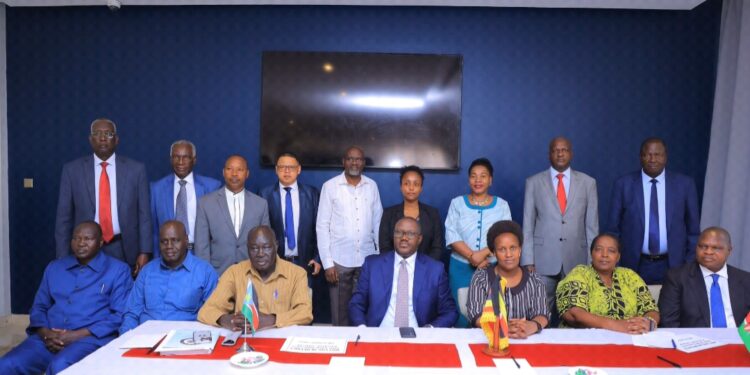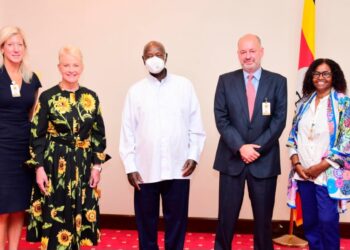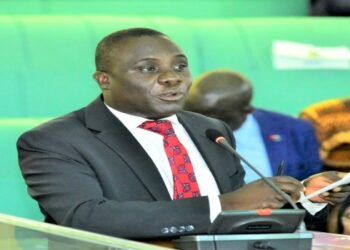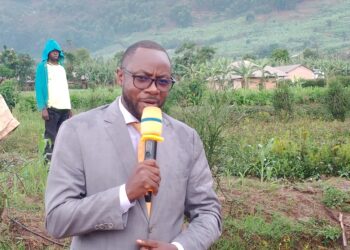In a significant development for East Africa’s peace and cooperation, Uganda, Kenya, and South Sudan have taken a major step toward resolving one of the region’s most sensitive boundary issues.
The 4th Tripartite Technical Boundary Committee (TTBC) meeting, held from December 19 to 21, 2024, in Kampala, focused on reaffirming the tri-junction point where the borders of the three countries meet. The meeting not only marked a crucial moment in the boundary demarcation process but also underscored the importance of this effort for regional stability, security, and sustainable development.
For decades, the undefined borders between Uganda, Kenya, and South Sudan have been a source of tension and conflict, exacerbated by historical disputes and local tensions over land and resources. The tri-junction point, where the borders of these three countries converge, has been a flashpoint for cross-border disputes. However, through a series of tripartite meetings, including the most recent in Kampala, the three nations have moved closer to resolving these issues through diplomacy and collaboration.
The primary goal of the three-day meeting was to review the progress made since previous talks in 2019, 2021, and 2021, and to finalize work plans, budgets, and timelines for the formal demarcation and reaffirmation of the tri-junction boundary. The discussions also centered on how the successful resolution of the boundary issue could be a game-changer for the entire region.
Regional Stability Through Boundary Resolution:
In his opening remarks, Uganda’s Permanent Secretary of the Ministry of Foreign Affairs, Mr. Bagiire Vincent Waiswa, emphasized the broader significance of the tri-junction boundary issue, not just for the three countries involved, but for the entire East African region.
He stressed that the establishment of a clear, mutually agreed-upon boundary would reduce the potential for conflict, promote cross-border trade, and improve cooperation in tackling shared challenges such as insecurity and economic development.
“The establishment of this boundary is not merely a technical matter,” Mr. Bagiire said. “It’s about securing the peace, stability, and prosperity of the entire region. A resolved boundary will create a strong foundation for deeper cooperation among Uganda, Kenya, and South Sudan, and ultimately, the entire East African Community (EAC).”
For Uganda, Kenya, and South Sudan, the border issue has had far-reaching implications, including sporadic local clashes, cattle rustling, and disputes over natural resources. By reaffirming and demarcating their borders, the three countries are not only improving their diplomatic relations but are also addressing the underlying causes of insecurity that have often destabilized the region.
The meeting also showcased a renewed commitment to cooperation among the three countries. Ms. Jacqueline W. Banana, Uganda’s Acting Head of the Department of Regional Peace and Security, expressed appreciation for the collaborative spirit that has characterized the negotiations so far. She noted that the previous three tripartite meetings, all funded by the African Union, have laid a solid foundation for the current discussions, ensuring that the process remains on track.
“It is through continuous dialogue and cooperation that we will ensure lasting peace and stability in our region,” Ms. Banana said. “We are grateful for the support of the African Union and other partners, which has enabled us to move forward with this crucial boundary demarcation process.”
Kenya’s head of delegation, Ms. Juster Nkoroi, added that the country has fully embraced the process and is committed to fulfilling its obligations under the memoranda of understanding (MOUs) signed with Uganda and South Sudan. She noted that Kenya’s participation in several sensitization efforts, including peace caravans and high-level meetings such as the Ateker leaders’ meeting in November 2024, has been pivotal in creating awareness and garnering local support for the boundary resolution.
“We are confident that this boundary demarcation will not only resolve past conflicts but will also lay the groundwork for deeper economic and political integration among our countries,” Ms. Nkoroi said.
South Sudan’s Role in Regional Integration
South Sudan, the youngest member of the tripartite group, has been particularly vocal about the importance of the boundary demarcation in promoting peace and stability. Hon. Dr. David Nailo Mayo, the Chairperson of South Sudan’s Transboundary Committee, underscored the significant role the African Union Border Programme (AUBP) has played in supporting the country’s participation in the negotiations.
He also highlighted that, for South Sudan, the successful resolution of the boundary issue would represent a milestone in the country’s efforts to solidify its role as a stable and integrated member of the East African Community.
“The work of the African Union and our partners has been instrumental in ensuring that our voices are heard in these discussions,” Hon. Mayo said. “By resolving these boundary issues, we are not just demarcating lines on a map; we are building bridges for future generations.”
As the three countries prepare for the re-affirmation and demarcation of the tri-junction boundary, the future of East African cooperation looks brighter than ever. The successful resolution of this border dispute is more than just a matter of territorial lines; it is a crucial step toward creating a more unified and stable region, where the people of Uganda, Kenya, and South Sudan can live, trade, and prosper in peace.
Do you have a story in your community or an opinion to share with us: Email us at editorial@watchdoguganda.com













